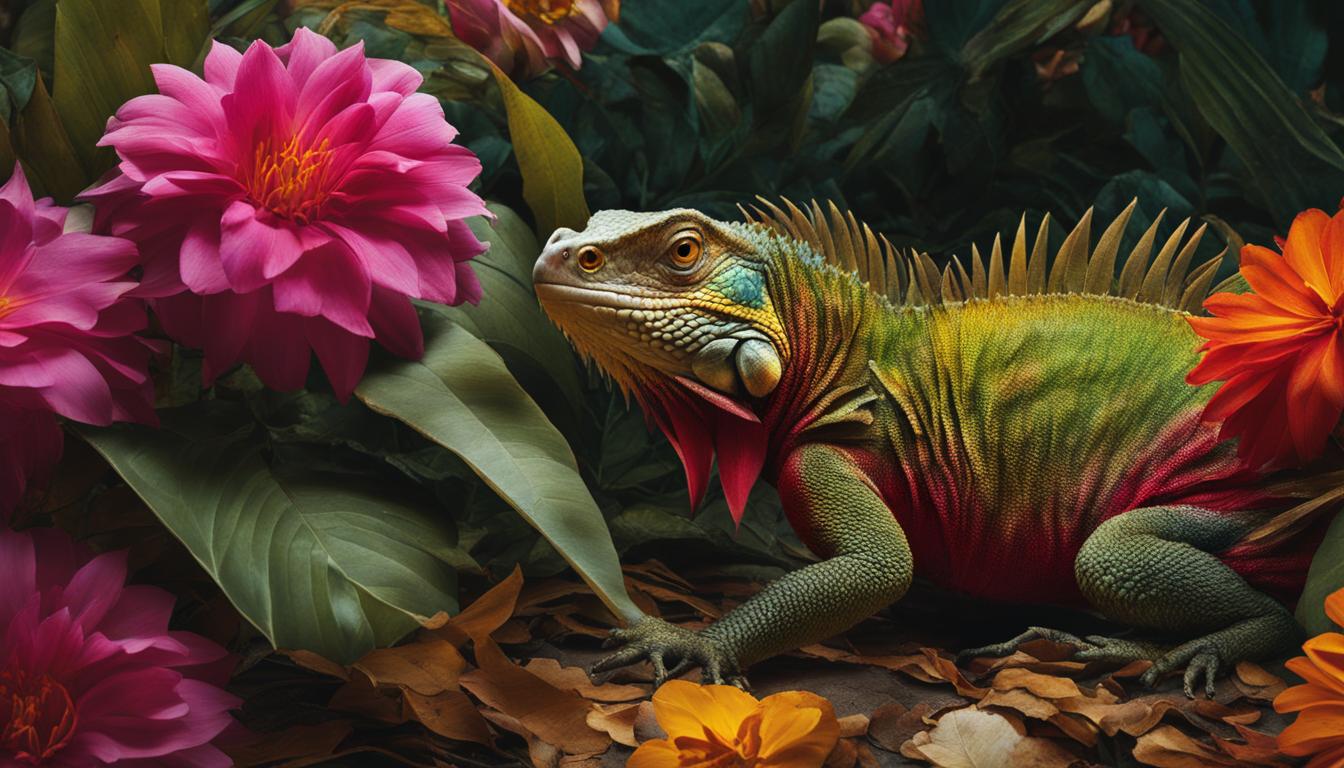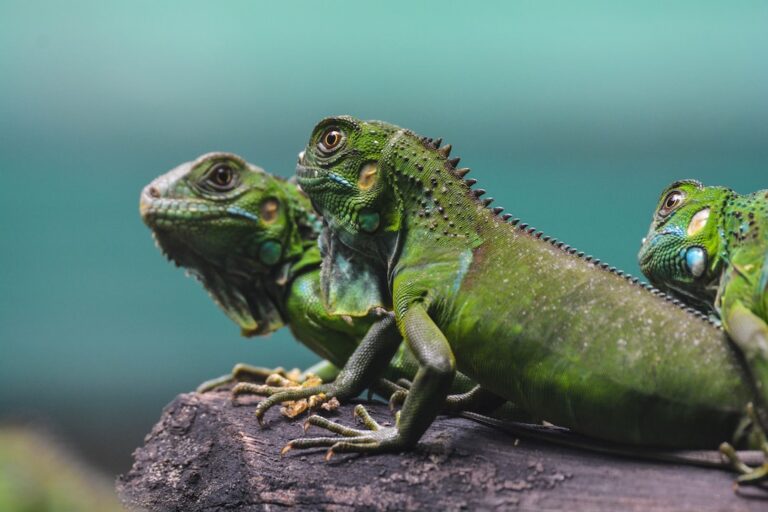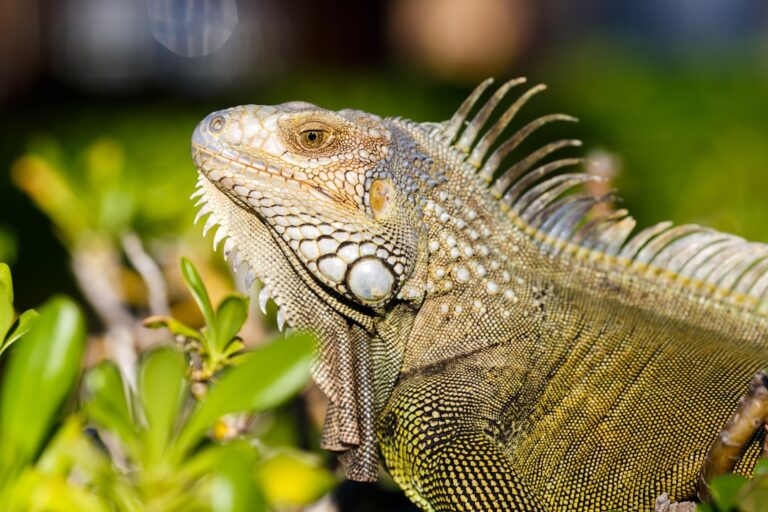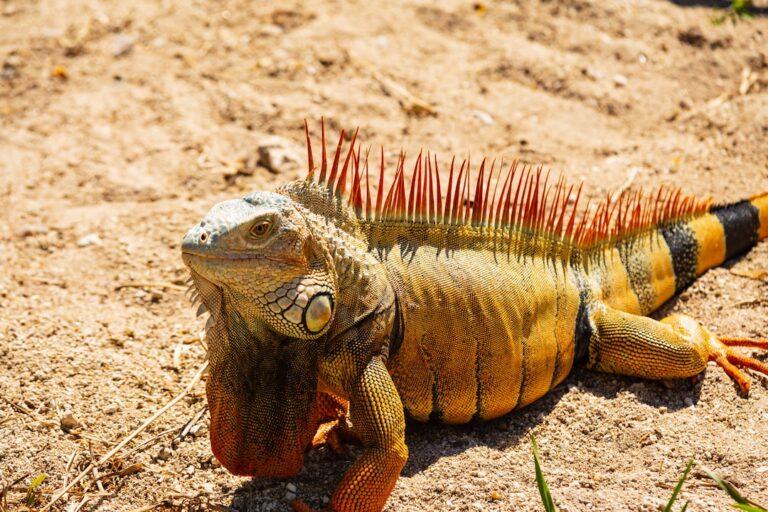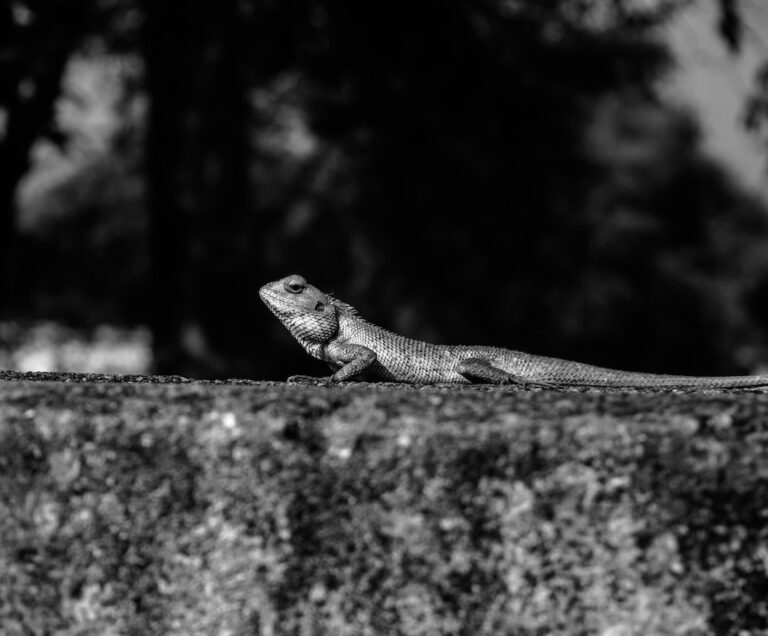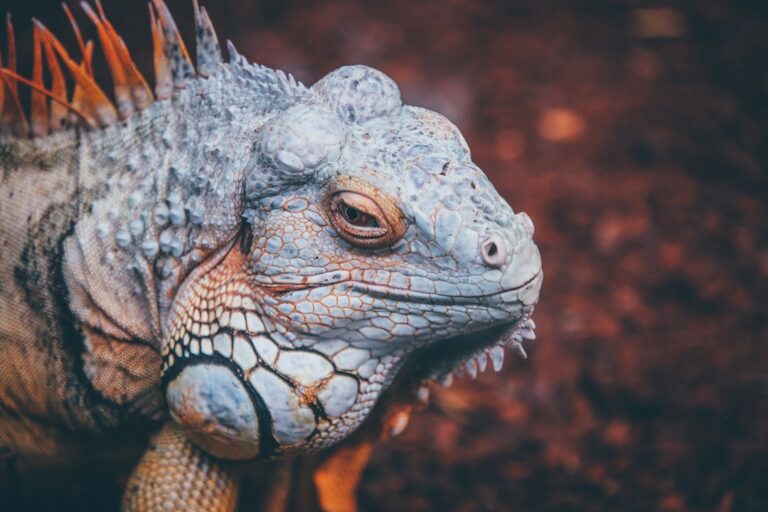Unappetizing Blooms: What Flowers Do Iguanas Not Eat?
Iguanas are primarily herbivorous reptiles that can cause damage to gardens and landscapes. It is important to know which flowers they do not eat to protect your plants. While iguanas may consume a wide variety of leafy greens, fruits, and vegetables, there are specific flowers that they tend to avoid. Knowing which plants are unappetizing to iguanas can help safeguard your garden and keep these reptiles away.
Table of Contents
Key Takeaways:
- Understanding which flowers iguanas do not eat is crucial for protecting your garden.
- Oleander, lilyturf, society garlic, West Indian jasmine, milkweed, and chili peppers are examples of iguana-resistant plants.
- Planting iguana-resistant plants strategically can deter these reptiles from devouring your plants.
- Consider using physical barriers and proper garden maintenance in combination with iguana-resistant plants for maximum effectiveness.
- Protecting your garden from iguanas ensures the health and longevity of your plants.
Oleander (Nerium oleander)
Oleander is a subtropical shrub native to the Mediterranean region. It is known for its colorful, showy blooms and erect stems. While oleander is an attractive plant, it is unappealing to iguanas due to its toxic properties. The plant contains cardiac glycosides that can adversely affect the nervous system and gastrointestinal tract of herbivores, including iguanas. Ingesting oleander tissues or coming into contact with its sap can cause allergic reactions in these reptiles. Placing clippings of oleander around areas frequented by iguanas can help deter them from entering your property.
Furthermore, the beautiful blooms of oleander can brighten up your garden while serving as a natural barrier against iguanas. By strategically planting oleander shrubs along the perimeter of your yard or in areas vulnerable to iguana intrusion, you can enhance the aesthetic appeal of your space while protecting it from these reptiles. The oleander’s toxic properties and unappetizing nature make it an effective choice for creating a iguana-resistant garden.
“Oleander’s toxic properties and unappetizing nature make it an effective choice for creating an iguana-resistant garden.”
When considering the use of oleander in your garden, it is important to exercise caution due to its toxicity. Avoid planting oleander in areas where children or pets may come into contact with it, as ingestion or skin contact can have adverse effects. Additionally, remember to wear gloves and take necessary precautions when handling oleander clippings or sap.
| Pros | Cons |
|---|---|
| Oleander is unappealing to iguanas due to its toxic properties. | Oleander is toxic and can be harmful to humans and animals if ingested or in contact with the skin. |
| Oleander’s colorful blooms enhance the aesthetic appeal of your garden. | Oleander requires careful handling and precautions due to its toxicity. |
| Placing oleander clippings around your property can help deter iguanas. | Oleander should be avoided in areas where children or pets may come into contact with it. |
Iguana-Resistant Plants: Oleander (Nerium oleander)
Oleander, with its toxic properties and unappetizing nature, can serve as an effective iguana-resistant plant. Its colorful blooms and erect stems not only add beauty to your garden but also act as a natural deterrent against iguanas. By strategically planting oleander shrubs and placing clippings in iguana prone areas, you can protect your garden and keep these reptiles at bay. However, it is important to handle oleander with caution due to its toxicity.
Lilyturf (Liriope muscari)

Lilyturf, also known as monkey grass or border grass, is a versatile groundcover plant commonly used for erosion control and landscaping purposes. It is easy to grow and can spread quickly to create lush mass plantings. Iguanas tend to avoid this plant due to compounds found in its grass-like leaves that have insect-repellent properties. By planting lilyturf along the borders of your yard or in areas frequented by iguanas, you can deter these reptiles from entering your property.
The unappetizing nature of lilyturf for iguanas makes it an excellent choice for those looking to protect their gardens from these herbivorous reptiles. Its insect-repellent properties provide an additional benefit, helping to keep unwanted pests at bay. Whether you are looking to create a natural iguana-resistant barrier or simply want to add texture and color to your landscape, lilyturf is a reliable option.
In addition to its practical benefits, lilyturf also adds aesthetic appeal to any garden or landscape. With its dense, grassy foliage and spikes of lavender or white flowers, lilyturf provides a visually pleasing element to outdoor spaces. Whether used as a border plant, groundcover, or accent in flower beds, this versatile plant can enhance the overall beauty of your garden while keeping iguanas at a distance.
Society Garlic (Tulbaghia violacea)
Society garlic, scientifically known as Tulbaghia violacea, is an excellent choice of flora if you want to keep iguanas away from your garden. This flowering plant not only adds beauty to your landscape with its lavender blooms but also acts as a natural deterrent for these reptiles. Similar to its name, society garlic emits a distinct garlic-like odor when its leaves are damaged or rubbed, providing an effective defense against insects and larger herbivores like iguanas. The scent of society garlic serves as a warning sign for these reptiles, discouraging them from entering your garden or consuming your valuable plants.
Mass plantings of society garlic can be strategically placed near high-value fruits and vegetables to protect them from iguana consumption. Its pungent odor and insect-repellent properties make it an ideal choice for those who are looking to create a natural iguana-resistant barrier in their gardens. By utilizing the power of society garlic, you can safeguard your plants and maintain the beauty of your outdoor space without the nuisance of iguanas.
In addition to its iguana-resistant qualities, society garlic is a low-maintenance plant that thrives in various soil conditions and requires minimal watering. It can withstand drought and is generally resistant to diseases and pests, making it an attractive option for both experienced and novice gardeners. Enhance the aesthetics of your garden while repelling iguanas by incorporating society garlic into your landscaping.
West Indian Jasmine (Ixora spp.)
West Indian jasmine, also known as jungle geranium or siantan, is a shrub with dense clusters of star-shaped flowers. It is native to tropical and subtropical regions and is well-known for its tough, leathery, dark green foliage. Iguanas tend to ignore the tough shoots and leaves of West Indian jasmine, making it an excellent choice for a natural iguana-resistant barrier. By planting this shrub around the perimeter of your yard, you can keep iguanas out and protect your plants.
| Plant | Characteristics | Benefits |
|---|---|---|
| West Indian Jasmine | Dense clusters of star-shaped flowers | Iguanas generally ignore the plant |
West Indian jasmine’s dense clusters of star-shaped flowers create an attractive display that can enhance the aesthetic appeal of your garden. Its tough shoots and leaves provide a natural defense against iguanas, as they are unappealing to these reptiles. By planting West Indian jasmine strategically, you can create a barrier that deters iguanas from entering your property, preventing them from damaging your plants.
In addition to its iguana-resistant properties, West Indian jasmine is a low-maintenance shrub that thrives in tropical and subtropical climates. It requires minimal pruning and can tolerate a variety of soil conditions. This makes it an ideal choice for homeowners looking for a hassle-free solution to protect their gardens from iguanas without compromising on visual appeal.
Milkweed: A Natural Deterrent for Iguanas
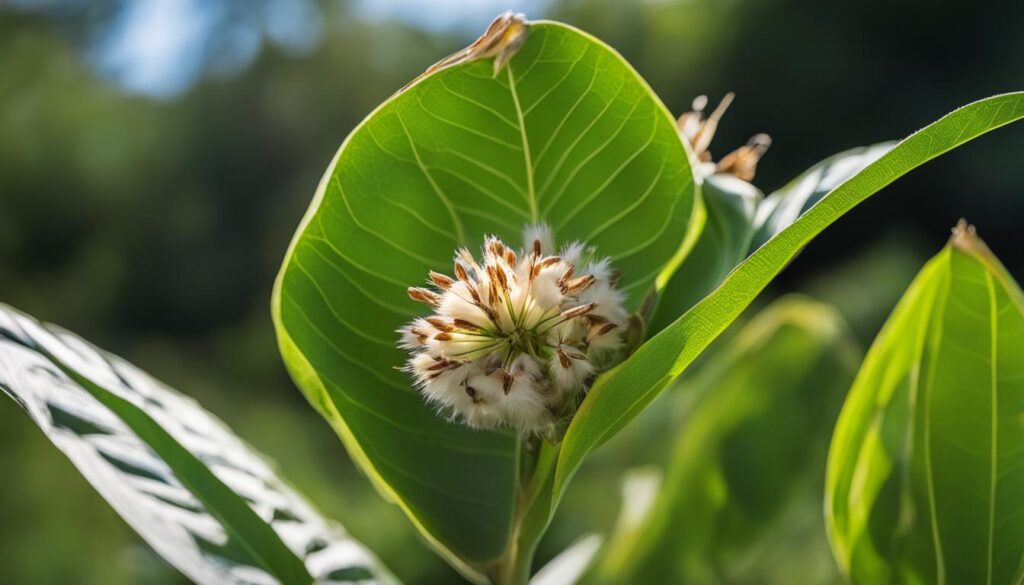
Iguanas are known to be voracious herbivores, but there are certain plants that they simply will not eat. One such plant is milkweed (Asclepias spp.), which produces a toxic sap that acts as a natural deterrent for these reptiles. The presence of milkweed in your garden can effectively deter iguanas from entering your property and feasting on your plants.
Milkweed is a shrub that is commonly found in North America, South America, and Africa. It contains toxic compounds that are released when its cells are damaged, making it unappealing to herbivores like iguanas. These chemical defenses primarily protect the plant from caterpillars, but they also discourage reptiles from overgrazing. By planting milkweed shrubs in dense rows, you can create a natural barrier that effectively deters iguanas.
In addition to its defensive properties, milkweed is also beneficial for pollinators like butterflies and bees. The plant produces nectar-rich flowers that attract these important pollinators, helping to support biodiversity in your garden. By incorporating milkweed into your landscape, you can create an environment that is both beautiful and inhospitable to iguanas.
Benefits of Milkweed as an Iguana-Resistant Plant:
- Produces toxic sap that repels iguanas
- Creates a natural barrier when planted in dense rows
- Attracts pollinators like butterflies and bees
- Supports biodiversity in your garden
By utilizing iguana-resistant plants like milkweed, you can protect your garden from these herbivorous reptiles and ensure the health and longevity of your plants.
Iguana-Resistant Plants: Chili Peppers
When it comes to deterring iguanas from your garden, one surprising plant to consider is chili peppers. These fiery fruits produce capsaicin, a compound that gives peppers their spicy taste. The burn caused by capsaicin lingers in the mouths of both mammals and reptiles, including iguanas, making these plants unpalatable to them. By incorporating chili peppers into your garden, you can create a natural deterrent and discourage iguanas from consuming your plants.
Chili peppers come in various shapes, sizes, and heat levels, providing plenty of options for your garden. From jalapeños to habaneros, you can choose the types that best suit your taste preferences while keeping iguanas at bay. Plant them strategically among your other flowers and vegetables to create a barrier that iguanas will find unappealing. Not only will these plants add a pop of color and flavor to your garden, but they will also help protect your other plants from being devoured by iguanas.
In addition to their iguana-resistant properties, chili peppers are low-maintenance plants that thrive in warm climates with plenty of sunlight. They require well-drained soil and regular watering to ensure healthy growth. By incorporating chili peppers into your garden, you can enjoy their spicy fruits while keeping iguanas away.
| Benefits of Chili Peppers for Iguana Control | How to Incorporate Chili Peppers into Your Garden |
|---|---|
|
|
Planting chili peppers in your garden provides a double benefit: you can enjoy their spicy fruits in your cooking while keeping iguanas away from your prized plants. With the variety of chili peppers available, you can create a beautiful and unappetizing barrier that will protect your garden from these herbivorous reptiles.
With their vibrant colors and fiery heat, chili peppers not only add visual appeal to your garden but also serve as a natural deterrent against iguanas. By incorporating these iguana-resistant plants into your garden, you can maintain the health and beauty of your plants while keeping unwanted reptilian visitors at bay. So spice up your garden and keep iguanas at a distance with the help of chili peppers.
Conclusion
Protecting your garden from iguanas is crucial to ensure the health and longevity of your plants. By utilizing iguana-resistant plants and other deterrents, you can create an environment that is less appealing to these herbivorous reptiles.
Oleander, lilyturf, society garlic, West Indian jasmine, milkweed, and chili peppers are all examples of plants that iguanas tend to avoid. These flowers can help safeguard your garden and keep these reptiles at bay. Planting them strategically, along with employing physical barriers and proper garden maintenance, can greatly reduce the risk of iguanas devouring your plants.
Remember that knowing which flowers iguanas do not eat plays a vital role in protecting your garden. By incorporating these iguana-resistant plants and implementing effective deterrents, you can create a beautiful and thriving garden that remains free from the damage caused by these reptiles.
FAQ
What flowers do iguanas not eat?
Iguanas tend to avoid flowers such as oleander, lilyturf, society garlic, West Indian jasmine, milkweed, and chili peppers.
What are some iguana-resistant plants?
Some iguana-resistant plants include oleander, lilyturf, society garlic, West Indian jasmine, milkweed, and chili peppers.
Why do iguanas avoid oleander?
Oleander contains toxic compounds that can adversely affect the nervous system and gastrointestinal tract of herbivores, including iguanas.
How does lilyturf deter iguanas?
Lilyturf contains compounds with insect-repellent properties, which make it unappealing to iguanas.
What repels iguanas from society garlic?
Society garlic emits a distinctive fragrance when its leaves are damaged or rubbed, acting as a natural repellent to insects and larger herbivores, including iguanas.
Why is West Indian jasmine a good choice for an iguana-resistant barrier?
Iguanas tend to ignore the tough shoots and leaves of West Indian jasmine, making it an effective choice for a natural barrier against iguanas.
How does milkweed deter iguanas?
Milkweed produces toxic sap that serves as a natural deterrent, repelling herbivorous reptiles like iguanas.
What makes chili peppers unappealing to iguanas?
Chili peppers contain capsaicin, a compound that causes a burning sensation in the mouths of mammals and reptiles, including iguanas, deterring them from consuming the peppers.
How can I protect my garden from iguanas?
By planting iguana-resistant plants strategically, using physical barriers, and maintaining your garden properly, you can create an environment that is less appealing to iguanas and safeguard your plants.

